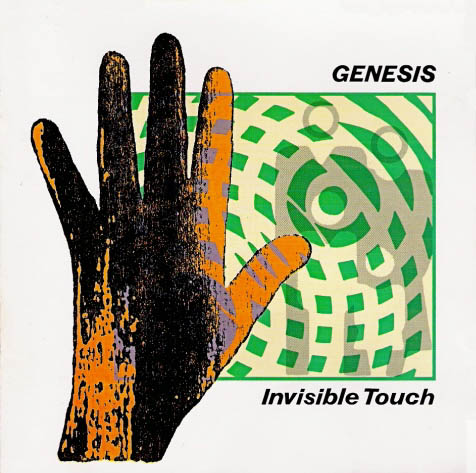
Invisible Touch (1986)

1.Invisible Touch
2.Tonight, Tonight, Tonight
3.Land of Confusion
4.In Too Deep
5.Anything She Does
6.Domino
a.In The Glow of the Night
b.The Last Domino
7.Throwing it all Away
8.The Brazillian
By 1986, Genesis had ceased to be merely a band—they had become a brand. You couldn’t turn on a radio, flip through a magazine, or watch a half-hour of MTV without encountering some branch of the ever-expanding Genesis family tree. Phil Collins, now a bona fide solo superstar, was charting hits with the regularity of a pop juggernaut. Mike Rutherford’s side project, Mike + The Mechanics, had also found favor with the masses. Peter Gabriel—always the eccentric exile—delivered his own commercial peak with the chart-topping Sledgehammer. Even Steve Hackett, of all people, briefly broke through with the short-lived supergroup GTR. In short, Genesis were everywhere—even when they weren’t Genesis.
With such ubiquity comes backlash. By the time Invisible Touch arrived, a kind of collective fatigue had set in. The airwaves were saturated, the novelty was gone, and for some, the sight of Phil Collins in yet another video was enough to provoke a quiet retreat into the back kitchen. It was the era of overkill—and Genesis, for better or worse, were its poster children.
And yet, if we're to be truly objective, this album is remarkably good.
Invisible Touch would go on to become their most commercially successful release, yielding an unprecedented five U.S. Top Ten singles—an extraordinary feat by any standard. The title track, their lone U.S. number one, may be remembered more for its ubiquity than its brilliance, but there’s a reason it scaled the charts: it’s lean, infectious, and impeccably produced. Contrary to popular belief, the record as a whole is not simply a collection of radio bait. There’s more nuance here than memory allows.
Tonight, Tonight, Tonight, with its brooding atmosphere and extended arrangement, is arguably the standout. Trimmed to fit the demands of FM formats (and eventually, beer commercials), its full version remains a masterclass in tension and release. Domino, the band’s latest great epic, stretches beyond the ten-minute mark and justifies every second—complex, theatrical, and still unmistakably Genesis. And The Brazilian, a percussive instrumental that closes the album, reminds anyone still listening that Genesis could still be musically audacious when they chose to be.
But success breeds repetition, and repetition breeds exhaustion. Tracks like Throwing It All Away and In Too Deep, while expertly crafted and sincerely delivered, quickly wore thin from overexposure. MTV, ever eager, ensured that the accompanying videos became inescapable fixtures. By the time the tour rolled around, half the setlist was lifted straight from Invisible Touch, leaving devotees of the band’s 1970s material to feel quietly alienated. The cost of mass appeal, it seems, was the partial abandonment of past glories.
Still, viewed dispassionately, Invisible Touch is a triumph of craftsmanship. The band was still writing collectively, still experimenting with form, and still—against the odds—producing material that resonated across continents. If it came wrapped in synth gloss and gated drums, so be it. This was 1986, after all.
A cultural saturation point? Undeniably. But beneath the media deluge lies a record that, even now, commands a grudging respect.
Go back to the main page
Go To Next Review